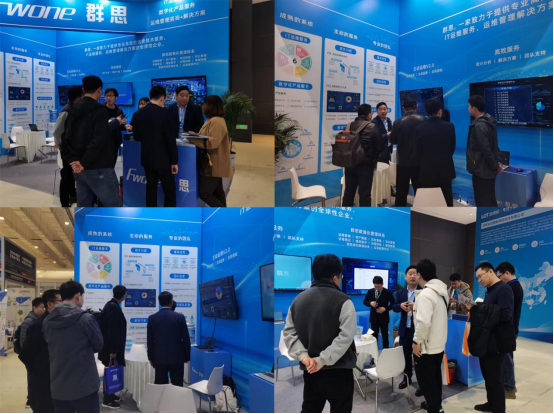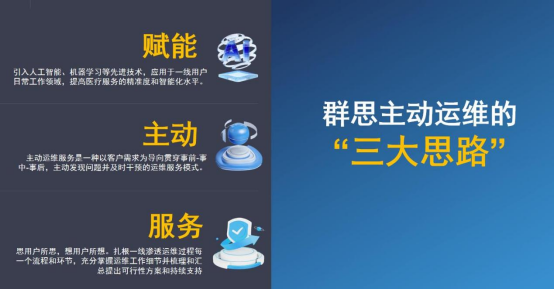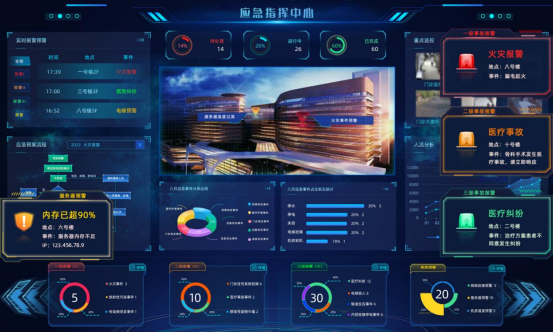From March 29th to 31st, the 2024 China Hospital Information Network Conference (CHINC) was successfully held in Qingdao City, Shandong Province. The conference focused on the planning and construction of hospital information security, inviting industry experts to discuss cutting-edge technologies and practical experiences. Experts, scholars, and enterprises from various fields of the medical industry, including production, education, research, and application, gathered at this grand event.
As an Asian enterprise dedicated to providing professional and efficient information technology services, IT operation and maintenance services, and operation and maintenance management solutions, Fwone appeared at the CHINC site with its one-stop operation and maintenance solutions and practical achievements.
The site was bustling with people, and Fwone's booth was highly popular. The exhibited products attracted many customers to watch, discuss, and communicate, gaining wide attention and recognition. Visitors stopped to learn about and experience the excellent performance of the products.
The site showcased Fwone's Digital Intelligence Management System, an IT operation and maintenance service system centered on ITSM. It includes operation and maintenance management, asset management, project management, knowledge management, visitor registration, duty attendance, remote assistance, intelligent customer service, etc., aiming to improve the IT operation efficiency of hospitals and continuously empower the digital transformation of hospitals.
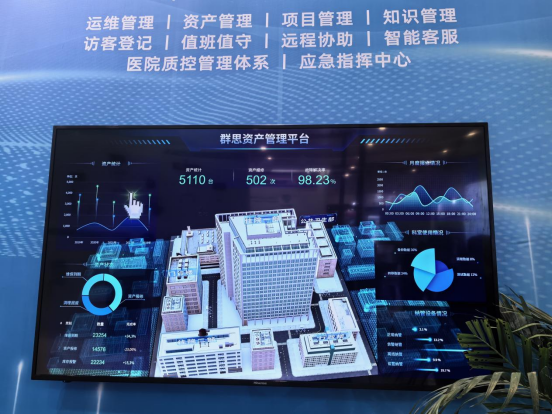
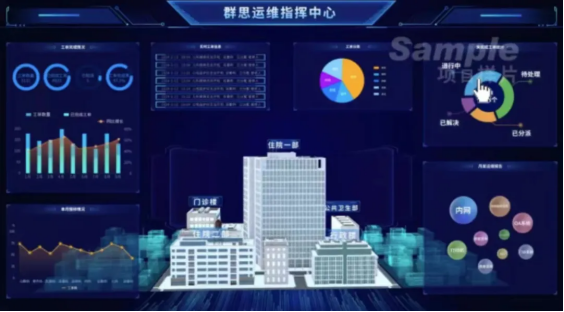
The application scenarios of the ITSM system in the medical industry are very extensive, covering multiple key areas of hospital operations. The following are some main application scenarios:
When medical equipment or information systems encounter faults, the ITSM system can respond quickly, record fault information, and automatically assign it to the corresponding technical personnel. Through a systematic process, it ensures that faults are handled in a timely and effective manner, reducing the impact of faults on medical services.
The ITSM system not only focuses on fault resolution but also commits to root cause analysis and prevention of problems. By analyzing historical fault data, the system can help hospitals identify potential problems and risks, and take preventive measures in advance to reduce the probability of faults.
In the medical industry, system upgrades, equipment replacements, or configuration adjustments are common. The ITSM system can manage these change requests, ensuring that the change process is properly planned and executed to avoid unnecessary business interruptions or impacts.
Hospitals possess a large number of IT assets, including servers, network equipment, medical equipment, etc. The ITSM system can uniformly manage and track these assets to ensure their accuracy and integrity. At the same time, the system can also provide data on asset usage and performance, helping hospitals make more informed procurement and decision-making.
Data security and privacy protection are crucial in the medical industry. The ITSM system can help hospitals establish strict security policies and compliance mechanisms to monitor and manage system security incidents and threats. Additionally, the system can provide auditing and reporting functions to ensure hospitals comply with relevant regulations and standards.
The ITSM system usually provides a user self-service portal through which employees can submit service requests, query fault status, or obtain solutions to common problems. Furthermore, the system can establish a knowledge base to store and share problem-solving experiences and skills, improving employees' ability to solve problems independently.
For services provided by external suppliers or partners, the ITSM system can help hospitals manage the service level agreements with them. The system can monitor service quality and performance, ensure suppliers provide services in accordance with the agreement requirements, and promptly handle any non-compliant situations.
In summary, the ITSM system has diverse application scenarios in the medical industry, aiming to improve the operational efficiency, service quality, and management level of medical institutions. By implementing the ITSM system, hospitals can better manage and optimize their IT resources and processes, providing more efficient and safer medical services for patients.
Fwone brought its upgraded operation and maintenance solution - Proactive Operation and Maintenance 2.0. This solution is not just the application of software, but a new type of operation and maintenance solution based on proactivity and centered on service-oriented provision. Its three core concepts are empowerment, proactivity, and service.
By introducing advanced technologies such as artificial intelligence and machine learning and applying them to the daily work of frontline users, the accuracy and intelligence level of medical services are improved. Fwone provides intelligent modules, including three major functions: intelligent assistant, intelligent voice customer service, and intelligent work order assignment.
Proactive operation and maintenance service is a customer demand-oriented operation and maintenance service model that runs through the pre-event, in-event, and post-event phases, proactively identifies problems and intervenes in a timely manner. Fwone provides a proactive connection module, including three major functions: next-generation remote assistance, proactive monitoring, and situation awareness.
Think what users think, and consider what users need. Rooted in the frontline, it penetrates every process and link of the operation and maintenance process, fully grasps the details of operation and maintenance work, sorts out and summarizes to propose feasible solutions and continuous support. Fwone provides team support, statistical analysis, and solutions to help users fully grasp and sort out operation and maintenance work and provide support for macro decision-making.
Fwone's Emergency Command Center was another highlight at the exhibition site. With a management model featuring unified command, unified data, intelligence, and high efficiency, it improves the management efficiency of information systems. It realizes comprehensive pre-event perception, rapid in-event response, and efficient post-event handling, replacing the traditional management model and reducing the risks caused by manual operations. By making full use of technologies such as audio-visual, digitalization, and intelligent control, it enhances emergency response capabilities and establishes and improves emergency mechanisms.
Fwone has conducted in-depth research in the medical industry and developed a complete set of medical digital products, including hospital management systems, risk assessment and early warning systems, adverse event management, and lean management platforms. These help hospitals deeply build management systems based on next-generation information technology, create a data quality control management system, meet the diverse needs of information construction and hospital management, and provide support for the construction of smart hospitals.
By building a quality control management system based on the concept of "grand quality" management, each system operates independently while supporting each other. Through the data layer, it realizes platform access, data collection, control, and protocol conversion, integrating into an integrated system to achieve comprehensive quality control management.
Fwone has conducted in-depth research on smart medical construction and continuously explored new models for hospital development. Currently, it has nine operation centers, serves more than 1,000 customers, has 22 years of operation and maintenance management experience, and 12 years of product research and development and practical experience. In the future, Fwone will continue to innovate applications, continuously empower the digital transformation of hospitals, and assist in the construction of smart medical care.

 Product Service
Product Service Smart Hospital
Smart Hospital




